2014 47th Annual Meeting
Fertility: A Global Challenge
19–23 July 2014
Grand Rapids, Michigan, USA
DeVos Place
Hosted by the Michigan Alliance for Reproductive and Translational Science (MARTS).
From the President
The theme of the Annual Meeting will be Fertility: A Global Challenge. This is the meeting you must attend as a reproductive biologist, especially if you’re a Trainee.
Please see the Scientific Program for our major speakers. The modules will focus on function rather than structure, with the exception of the Ovarian Workshop, and there will be a strong emphasis on translational research.
This meeting should be of interest to all reproductive biologists, irrespective of their field of interest.
—Jock K. Findlay, Ph.D., D.Sc., President
Scientific Programs
Programs
Keynote Address
Dr. Glasier is a recognized world expert on emergency contraception and has been an instrumental figure in its deregulation. She has advised for such notable organizations as the World Health Organization, the Population Council, and the Wellcome Trust and has held many memberships on related advisory panels.
- Chair: Diana L. Blithe, Ph.D. (NIH/NICHD, Rockville, Maryland, USA).
- Speaker: Anna Glasier, M.D. (University of Edinburgh, Edinburgh, Scotland, United Kingdom). “Increasing Global Contraceptive Use.”
President’s Symposium
The President’s Symposium will focus on contraception, a key issue for the reproductive health and welfare of the human race. While contraceptive user rates are increasing in many developed and developing countries, there are still many gaps regarding their suitability for all individuals and in their availability, which collectively increases the likelihood of unintended pregnancies.
Invited Speakers
In line with the theme of the meeting, there will be four plenary lectures on the latest research on new methods of contraception for women and men.
- Co-chairs: Jock K. Findlay, Ph.D., D.Sc. (Prince Henry’s Institute of Medical Research, Clayton, Victoria, Australia) and Richard L. Stouffer, Ph.D. (Oregon National Primate Research Center, Beaverton, Oregon, USA).
- Speaker: Jeffrey T. Jensen, M.D. (Oregon Health and Science University, Portland, Oregon, USA). “The Future of Female Contraception: New Targets, More Choice.”
- Speaker: Christina C. Wang, M.D. (University of California Los Angeles, Torrance, California, USA). “Hormonal Male Contraception on the Horizon.”
- Speaker:John K. Amory, M.D. (University of Washington, Seattle, Washington, USA). “Novel ALDH1A2 Inhibitors for Male Contraception.”
- Speaker:Diana L. Blithe, Ph.D. (NIH/NICHD, Rockville, Maryland, USA). “Making Contraceptive Development Greener.”
Roundtable Discussion
During the Roundtable Discussion, the Plenary Speakers will participate in an interactive discussion session with attendees.
- Co-chairs: Jock K. Findlay, Ph.D., D.Sc. (Prince Henry’s Institute of Medical Research, Clayton, Victoria, Australia) and Richard L. Stouffer, Ph.D. (Oregon National Primate Research Center, Beaverton, Oregon, USA).
- Participants:
- John K. Amory, M.D. (University of Washington, Seattle, Washington, USA).
- Diana L. Blithe, Ph.D. (NIH/NICHD, Rockville, Maryland, USA).
- Anna Glasier, M.D. (University of Edinburgh, Edinburgh, Scotland, United Kingdom).
- Jeffrey T. Jensen, M.D. (Oregon Health and Science University, Portland, Oregon, USA).
- Christina C. Wang, M.D. (University of California Los Angeles, Torrance, California, USA).
AgResearch Plenary Lecture
- Chair: Mark A. Mirando, Ph.D. (USDA–NIFA, Washington, DC, USA).
- Speaker: Milo C. Wiltbank, Ph.D. (University of Wisconsin–Madison, Madison, Wisconsin, USA). “How Knowledge of Bovine Reproductive Physiology and Development of Reproductive Technologies Will Help to Feed a Growing World Population.”
Historical Perspectives Lecture
- Chair: Lois A. Salamonsen, Ph.D. (Prince Henry’s Institute of Medical Research, Clayton, Victoria, Australia).
- Speaker: Sir Ian Wilmut, FRS, Ph.D. (University of Edinburgh, Edinburgh, Scotland, United Kingdom). “History of Nuclear Transfer.”
Hot Topics Lecture
- Chair: To be announced.
- Speaker: Enrica Bianchi, Ph.D. (Wellcome Trust Sanger Institute, Hinxton, United Kingdom). “Izumo Meets Its Match: Introducing Juno.”
State-of-the-Art Lecture
- Chair: Jon D. Hennebold, Ph.D. (Oregon National Primate Research Center, Beaverton, Oregon, USA).
- Speaker: Richard E. Green, Ph.D. (University of California Santa Cruz, Santa Cruz, California, USA). “The Porous Barriers to Reproductive Isolation: Lessons from Genome Sequencing in Humans and Bears.”
Exchange Lectures
ASRM Distinguished Research Scientist
- Chair: Andrew R. La Barbera, Ph.D. (American Society for Reproductive Medicine, Birmingham, Alabama, USA), Scientific Director, ASRM.
- Speaker: Robert J. Norman, AO, M.D. (Robinson Institute, University of Adelaide, Adelaide, South Australia, Australia). “From Little Things, Big Things Grow—The Importance of Peri-conception Medicine and Biology to Human Health.”
SSR New Investigator
- Chair: Jennifer R. Wood, Ph.D. (University of Nebraska–Lincoln, Lincoln, Nebraska, USA).
- Speaker: Kanako Hayashi, Ph.D. (Southern Illinois University, Carbondale, Illinois, USA). “The Impact of Epithelial Genes in Endometrial and Ovarian Cancer.”
Modules
A. Mechanisms of Fertility/Infertility
Session I. Neuroendocrine Function
- Invited Talk: Michael Lehman, Ph.D. (University of Mississippi Medical Center, Jackson, Mississippi, USA). “KNDy Cells and Peptides in the Control of Fertility/Infertility.”
- Invited Talk: Haruhiko Kanasaki, M.D., Ph.D. (Shimane University, Izumo City, Japan). “Role of PACAP and Its PAC1 Receptor in Reproductive Neuroendocrine Cells.”
Session II. Germ Cell Development and Function
- Invited Talk: Eileen McLaughlin, Ph.D. (University of Newcastle, Callaghan, New South Wales, Australia). “Making It Through Meiosis: FZR1 Is Essential for Meiotic Prophase I.”
- Invited Talk: James A. MacLean II, Ph.D. (Southern Illinois University, Carbondale, Illinois, USA). “Somatic RHOX Homeobox Factors Support Male Fertility.”
Session III. Gamete Transport/Fertilization
- Invited Talk: William H. Kinsey, Ph.D. (University of Kansas Medical Center, Kansas City, Kansas, USA). “In Vitro Aging Effects on Mouse Oocyte Signaling Pathways Revealed by Kinome Microarray Analysis.”
- Invited Talk: Gail A. Cornwall, Ph.D. (Texas Tech University Health Sciences Center, Lubbock, Texas, USA). “Good Amyloid and Fertility.”
Session IV. Uterine Receptivity/Implantation
- Invited Talk: Niamh Forde, Ph.D. (University College Dublin, Dublin, Ireland). “‘Conceptualizing’ the Endometrium: Understanding Conceptus–Uterine Interactions in Cattle.”
- Invited Talk: Guiying Nie, Ph.D. (Prince Henry’s Institute of Medical Research, Clayton, Victoria, Australia). “Post-translational Modifications and Endometrial Remodeling for Receptivity.”
Session V. Uterine Receptivity/Implantation
- Invited Talk: Indrani C. Bagchi, Ph.D. (University of Illinois at Urbana–Champaign, Urbana, Illinois, USA). “Molecular Mechanisms of Implantation: Stromal–Epithelial Crosstalk.”
- Invited Talk: Christopher R. Murphy, Ph.D. (University of Sydney, Sydney, New South Wales, Australia). “Coming Unstuck Gracefully: How Uterine Epithelial Cells Let Blastocysts In.”
Session VI. Placentation and Parturition
- Invited Talk: Ana M. Franchi, Ph.D. (CONICET–UBA, Buenos Aires, Argentina). “Participation of the Endocannabinoid System In LPS-Induced Embryonic Resorption.”
- Invited Talk: Kathleen M. Caron, Ph.D. (University of North Carolina at Chapel Hill, Chapel Hill, North Carolina, USA). “Fetal Signals that Contribute to Maternal Adaptation to Pregnancy.”
B. Translation of Basic Science to Real-World Practice
Session I. Humans/Nonhuman Primate Models
- Invited Talk: Jun Wang, Ph.D. (Beijing Genomics Institute, Beijing, China). “A New Era of Noninvasive Prenatal Testing: Cell Free DNA and Fetal Cell Sequencing.”
- Invited Talk: Krina T. Zondervan, Ph.D. (University of Oxford, Oxford, United Kingdom). “Endometriosis in Humans and the Rhesus Macaque.”
Session II. Agricultural/Large Animal Species
- Invited Talk: George W. Smith, Ph.D. (Michigan State University, East Lansing, Michigan, USA). “Embryotropic Actions of Follistatin: Mechanisms and Translational Relevance.”
- Invited Talk: Thomas E. Spencer, Ph.D. (Washington State University, Pullman, Washington, USA). “Systems Biology Approaches to Understanding Conceptus Elongation and Early Pregnancy Loss.”
- Invited Talk: Pablo J. Ross, D.V.M., Ph.D. (University of California, Davis, Davis, California, USA). “H3K27me3 Remodeling During Bovine Preimplantation Development.”
Session III. Agricultural/Large Animal Species
- Invited Talk: Randall S. Prather, Ph.D. (University of Missouri, Columbia, Missouri, USA). “Biologically Relevant Swine Models of Human Disease.”
- Invited Talk: Alan D. Ealy, Ph.D. (Virginia Tech, Blacksburg, Virginia, USA). “The Past, Present, and Future of Translational Biology Research in Cattle.”
Session IV. Wildlife, Feral Species, Companion Animals
- Invited Talk: Michelle Kutzler, D.V.M., Ph.D. (Oregon State University, Corvallis, Oregon, USA). “Gonad-Sparing Sterilization Techniques in Dogs: Benefits of Contraception Without Risks of Gonadectomy.”
- Invited Talk: Katarina Jewgenow, Ph.D. (Leibniz Institute for Zoo and Wildlife Research, Berlin, Germany). “The Miracle of Lynx Reproduction—Histological and Hormonal Life Span of CL in Felids.”
Session V. Humans/Nonhuman Primate Models (SGI Exchange)
- Invited Talk: Shawn L. Chavez, Ph.D. (Oregon National Primate Research Center, Beaverton, Oregon, USA). “Non-Invasive Detection of Chromosomal Abnormalities During Pre-Implantation Development: A Cross-Species Comparison.”
- Invited Talk: Nathan R. Treff, Ph.D. (Rutgers University, New Brunswick, New Jersey, USA, and Reproductive Medicine Associates of New Jersey, Morristown, New Jersey, USA). “Translating Basic Methods of Molecular Genetics into Improved Clinical Treatment of Human Infertility.”
- Invited Talk: Bruce A. Lessey, M.D., Ph.D. (Fertility Center of the Carolinas, Greenville, Greenville, South Carolina, USA). “Root Causes and Consequences of Endometriosis and Progesterone Resistance.”
Session VI. Cancer
- Invited Talk: Ronald J. Buckanovich, M.D., Ph.D. (University of Michigan, Ann Arbor, Michigan, USA). “Teaching Old and New Dogs a New Trick.”
- Invited Talk: Judith A. Smith, Ph.D. (University of Texas M.D. Anderson Cancer Center, Houston, Texas, USA). “From Bench to Bedside and Back: Keeping Research Clinically Relevant.”
C. Interrelationship of Reproduction and the Environment
Session I. Toxicology
- Invited Talk: Eric Nilsson, Ph.D. (Washington State University, Pullman, Washington, USA). “Environmentally Induced Epigenetic Transgenerational Inheritance of Ovarian Disease.”
- Invited Talk: Ulrike Luderer, M.D., Ph.D. (University of California, Irvine, Irvine, California, USA). “Transplacental Benzo[a]pyrene Exposure and Glutathione Deficiency: A Perfect Storm for Ovarian Toxicity and Tumorigenesis.”
Session II. Endocrine Disruptors
- Invited Talk: Jodi A. Flaws, Ph.D. (University of Illinois at Urbana–Champaign, Urbana, Illinois, USA). “The Effects of Endocrine Disrupting Chemicals on the Ovary.”
- Invited Talk: Louis J. Guillette Jr., Ph.D. (Medical University of South Carolina, Charleston, South Carolina, USA). “Endocrine Disrupting Contaminants and the Developing Reproductive System.”
Session III. Endocrine Disruptors
- Invited Talk: Benson T. Akingbemi, D.V.M., Ph.D. (Auburn University, Auburn, Alabama, USA). “Endocrine Disruptor Regulation of Leydig Cell Differentiated Function.”
- Invited Talk: Penny Swanson, Ph.D. (NOAA Fisheries, Seattle, Washington, USA). “Alteration of Pituitary Function in Fish by Endocrine Disrupting Chemicals in Aquatic Ecosystems.”
Session IV. Obesity/Nutrition
- Invited Talk: Kelle H. Moley, M.D. (Washington University, St. Louis, Missouri, USA). “Maternal Overnutrition, Oocyte Programming and the Right Scientific Questions: Nuclear or Mitochondrial? Diet-Induced or Obesity?”
- Invited Talk: Kartik Shankar, Ph.D. (University of Arkansas for Medical Sciences, Little Rock, Arkansas, USA). “Like Mother, Like Son: How Maternal Obesity Programs Offspring Obesity Risk.”
Session V. Obesity/Nutrition
- Invited Talk: Romain Lambrot, Ph.D. (McGill University, Montreal, Quebec, Canada). “Effects of Paternal Diet on the Sperm Epigenome and Offspring Health.”
- Invited Talk: Hasan Khatib, Ph.D. (University of Wisconsin–Madison, Madison, Wisconsin, USA). “Transgenerational Effects of Maternal Nutrition on Reproduction and Health Traits.”
Session VI. Obesity/Nutrition
- Invited Talk: Roger G. Sturmey, Ph.D. (The Hull York Medical School, Hull, United Kingdom). “The Impact of Maternal Body Weight on Early Embryo Physiology.”
- Invited Talk: Rebecca L. Robker, Ph.D. (The University of Adelaide, Adelaide, South Australia, Australia). “Protecting Oocytes from Hyperlipidemia—Shared Pathways in Mice, Cows, and Women.”
D. Ovarian Workshop (morning) and Pregnancy/Developmental Origins of Health and Disease (afternoon)
Session I. Ovarian Workshop: Fertility Preservation
- Invited Talk: Karla Hutt, Ph.D. (Monash Institute of Medical Research–Prince Henry’s Institute of Medical Research, Clayton, Victoria, Australia). “Emerging Approaches to Preserve Fertility in Young Women with Cancer: Preventing Follicle Loss.”
- Invited Talk: Richard A. Anderson, Ph.D. (The University of Edinburgh, Edinburgh, Scotland, United Kingdom). “Fertility Preservation for Girls and Young Women.”
Session II.Pregnancy/Developmental Origins of Health and Disease: Effects on Gonadal Function
- Invited Talk: Tod Fullston, Ph.D. (The University of Adelaide, Adelaide, South Australia, Australia). “Paternal Obesity Impairs the Reproductive Viability of Two Generations of Male Mice and Alters Founder Sperm MicroRNA Profile, A Candidate Epigenetic Mechanism for Paternal Programing.”
- Invited Talk: Deborah Sloboda, Ph.D. (McMaster University, Hamilton, Ontario, Canada). “Developmental Origins of Health and Disease: Effects on Ovarian Function.”
Session III. Ovarian Workshop: Oocyte Development and Function
- Invited Talk: Karen A. Schindler, Ph.D. (Rutgers University, Piscataway, New Jersey, USA). “Aurora Kinase Function During Meiosis in Mouse Oocytes.”
- Invited Talk: Catherine Combelles, Ph.D. (Middlebury College, Middlebury, Vermont, USA). “Environmental Influences: Is the Developing Oocyte in Danger?”
Session IV.Pregnancy/Developmental Origins of Health and Disease: Programming Effects of ARTs on Development
- Invited Talk: Paolo Rinaudo, M.D., Ph.D. (University of California, San Francisco, San Francisco, California, USA). “Can IVF Affect Offspring’s Metabolic Health? Experience from a Rodent Model.”
- Invited Talk: Kevin D. Sinclair, Ph.D. (The University of Nottingham, Nottingham, United Kingdom). “Epigenetics and Reproductive Health: Linking Nutritional Biochemistry to Long-Term Development.”
Session V. Ovarian Workshop: Mechanisms of Ovulation and Luteinization
- Invited Talk: Mario Ascoli, Ph.D. (University of Iowa, Iowa City, Iowa, USA). Title to be announced.
- Invited Talk: Rina Meidan, Ph.D. (Hebrew University, Rehovot, Israel). “Hypoxia—A Driving Force in Corpus Luteum Formation.”
Session VI. Pregnancy/Developmental Origins of Health and Disease: Epigenetics and Gametes/Gonads
- Invited Talk: Piroska E. Szabó, Ph.D. (Beckman Research Institute, Duarte, California, USA). “Remodeling the Epigenome in the Male Germline.”
- Invited Talk: Toru Nakano, M.D. (Osaka University, Osaka, Japan). “Gene Silencing of Male Germ Cells by piRNA.”
From the Program Committee
This year’s theme, Fertility: A Global Challenge, highlights the impact reproductive science has on the environment, wildlife species, domesticated animals, human fertility, and population growth, as well as their interaction with one another.
We’ve provided a full description of the President’s Symposium and Keynote Address in the full version of this letter on the SSR 2014 News and Updates Blog.
Since the 2012 meeting at Penn State, minisymposia have been replaced with focused or themed modules. Strong positive feedback from SSR members has encouraged continuation of this evolving format. The modules for 2014 will focus on “function” to provide a more global “systems” overview of reproductive biology.
See you in Grand Rapids!
—Jon Hennebold, Ph.D. and Lois Salamonsen, Ph.D., SSR Program Committee Co-Chairs
2014 47th Annual Meeting
July 19, 2014 — July 23, 2014
Grand Rapids, Michigan, USA
DeVos Place
Hosted by the Michigan Alliance for Reproductive and Translational Science (MARTS).
KEYNOTE AND PLENARY SPEAKERS
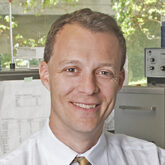
John K. Amory, M.D.
Position/Education: John K. Amory, M.D. graduated magna cum laude in biology from Harvard University and obtained his Medical Degree from the University of California, San Francisco, where he also completed his residency in internal medicine. He is currently Professor of Medicine and Section Head of General Internal Medicine at the University of Washington, where he works as an attending physician on the inpatient medicine wards and in the General Internal Medicine Clinic.
Research: His research interests are the development of novel forms of male contraception and new approaches to the treatment of men with infertility. Dr. Amory has published more than 100 peer-reviewed papers in the field of male reproduction, and holds current funding from the NIH for contraceptive research. He lives in Seattle with his wife and two sons.
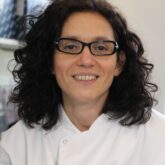
Enrica Bianchi, Ph.D.
Enrica Bianchi, Ph.D. graduated with a degree in Biological Science from the University of Bologna (Italy) and obtained her Ph.D. in Reproduction and Development at the University of Rome Tor Vergata in 2008. The molecular mechanisms of fertilization, as well as the cells involved in this event—the sperm and egg—are her main research interests. As a Ph.D. student and as a postdoctoral research fellow, Dr. Bianchi has studied female fertility and fertilization. Before moving to the UK in 2011, she investigated the reproductive defects in mice that were deficient in a gene encoding an RNA-binding protein. At the Wellcome Trust Sanger Institute (Hinxton, England), she joined Dr Gavin Wright’s group to study the molecular basis of mammalian sperm-egg recognition. By combining large-scale protein interaction screening approaches and molecular techniques available in the Cell Surface Signalling Laboratory, Dr. Bianchi recently identified the egg receptor Juno (formerly known as folate receptor 4), which is essential for fertilization and showed that it is the binding partner of the sperm protein Izumo1 (Nature 508: 483–487, 24 April 2014).
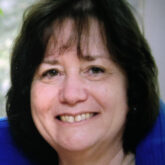
Diana L. Blithe, Ph.D.
Position/Education: Diana L Blithe, Ph.D. serves as the Program and Scientific Director for the Contraceptive Development Research Programs of the Eunice Kennedy Shriver National Institute of Child Health and Human Development in the National Institutes of Health in Bethesda, Maryland. In addition to basic research programs to discover new targets for male or female contraception, she directs clinical development of new contraceptive products for both women and men.
Research: She has published numerous papers in the fields of biochemistry, endocrinology, glycobiology, and contraceptive research and has organized several international meetings, including three meetings on the Future of Contraception, a meeting on Progesterone Receptor Modulators and the Endometrium, and a meeting on Contraception and Obesity. Dr. Blithe has served on the editorial boards of The Journal of Biological Chemistry, Archives of Biochemistry and Biophysics, and Endocrine.
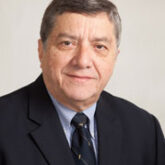
José F Cordero, M.D., M.P.H.
Position/Education: José F Cordero, M.D., M.P.H. is the Dean of the University of Puerto Rico (UPR) Graduate School of Public Health at the Medical Sciences Campus. Dr. Cordero’s current research focuses on the risk factors and prevention of preterm births. He serves as Co-Principal investigator of the Puerto Rico Testsite for Exploring Contamination Threats (PROTECT). This research program, funded by the National Institutes of Health, Superfund Research Program, examines environmental risk factors for preterm births.
Dr. Cordero served for 27 years in the US Public Health Service at the Centers for Disease Control and Prevention (CDC). During his years at CDC he rose to Assistant Surgeon General and held positions focused on improving the health of mothers, children, and adults in programs such as immunizations, birth defects, and disabilities. In 1994, he was appointed Deputy Director of the National Immunization Program, and in 2001 he was selected to be the founding Director of the National Center on Birth Defects and Developmental Disabilities, the position he held until his retirement. In 2008, he was called to serve in the Obama-Biden transition team for the Department of Health and Human Services. He also serves as National Trustee of the March of Dimes, a foundation with a mission of helping mothers have full-term pregnancies and research the problems that threaten the health of babies.
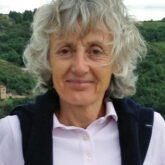
Anna Glasier, M.D.
Position/Education: Anna Glasier, M.D. trained in obstetrics and gynecology in Edinburgh, Scotland. After subspecialty training in Reproductive Medicine, she became a clinical scientist in the MRC Unit of Reproductive Biology, and held the position of Director of Family Planning & Well Woman Services for Lothian from 1990 until 2010. She was awarded an OBE for services to Women’s Health in 2005. Dr. Glasier is an honorary professor at the London School of Hygiene and Tropical Medicine and the University of Edinburgh.
Research: Her research career has been in reproductive health, particularly in contraceptive development and in the delivery of contraceptive services. She is a world expert on emergency contraception and was instrumental in its deregulation to over-the counter status. She works with a number of international organizations, including the Population Council and the World Health Organization.
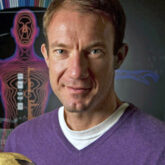
Richard E. Green, Ph.D.
Position: Richard E. Green, Ph.D. is Assistant Professor of Biomolecular Engineering at the Baskin School of Engineering, University of California Santa Cruz.
Research: His research interests are genomics—especially as related to human evolution, evolution of gene expression, alternative splicing, and population genetics. Dr. Green collaborates with fellow researcher and co-PI Dr. Beth Shapiro in the Paleogenomics Lab at UCSC, where studies are underway on human and pathogen evolution, population genetics, and environmental transformation versus genomic change. Dr. Green’s latest projects have included analysis of the archaic human genome, the Genomes10K project, and comparative genomics of Crocodilia.
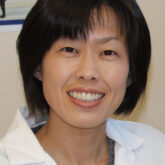
Kanako Hayashi, Ph.D.
Position/Education: Kanako Hayashi, Ph.D. received her Ph.D. in 2002 in Japan, and worked with Drs. Spencer and Bazer at Texas A&M University as a postdoc and a research assistant professor. In 2008, Dr. Hayashi moved to Southern Illinois where she is currently an assistant professor in the Department of Physiology, Southern Illinois University School of Medicine.
Research: Her major research focus is endometrial and ovarian cancer as well as uterine biology, especially to discover novel mechanisms and targets for developing therapeutic strategies.
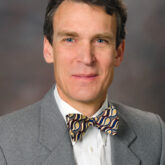
Jeffrey T. Jensen, M.D.
President’s Symposium
Position/Education: Jeffrey T. Jensen, M.D., received his B.S. degree in biology from Stanford, his M.D. degree from Emory University, the M.P.H. degree from the University of Washington, and completed internship at Santa Clara Valley Medical Center and residency training in Obstetrics and Gynecology at Oregon Health Sciences University (OHSU). After military service in the Navy, he joined the faculty at OHSU. Dr. Jensen maintains an active clinical practice and serves as Director of the Women’s Health Research Unit at OHSU.
Research: His primary clinical research interests include contraception and vulvar disease. Dr. Jensen is also involved in pre-clinical investigations of novel contraceptives at the Oregon National Primate Research Center.
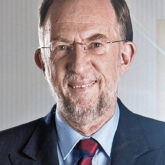
Robert J. Norman, M.D.
ASRM Exchange Lecture
Robert J. Norman, M.D., holds a personal chair as Professor for Reproductive and Periconceptual Medicine at the University of Adelaide in South Australia and is a subspecialist in reproductive medicine (CREI) and in endocrine biochemistry (FRCPA). He was Director of the Robinson Institute at the University of Adelaide, a collection of over 450 researchers in reproductive health and regenerative medicine. He has published more than 420 peer-reviewed publications and one book. Dr. Norman has served on the editorial board of major endocrine and reproductive journals. His major research contributions have been in IVF and reproductive endocrinology (particularly in PCOS), the effect of lifestyle on reproductive outcomes, and periconception medicine. He is an active reproductive medicine specialist. He serves on the Australian National Health and Medical Research Council’s research and embryo licensing committees. He was awarded the Order of Australia (AO) and the American Society for Reproductive Medicine Distinguished Researcher Award in 2013.
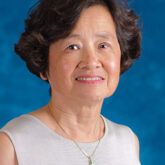
Christina C. Wang, M.D.
President’s Symposium
Position: Christina C. Wang, M.D., Professor of Medicine and Assistant Dean in Clinical and Translational Sciences at the David Geffen School of Medicine at the University of California, Los Angeles, is an internationally renowned andrologist/endocrinologist and a clinical and basic investigator/educator. She is a co-director of the NICHD-supported Contraceptive Clinical Trials Network Centers at the Los Angeles Biomedical Research Center at Harbor-UCLA Medical Center. Supported by several NIH grants, she has aggressively advocated increased opportunities for women and minorities in biomedical research.
Research: Her current clinical research studies include androgen replacement therapy, hormonal male contraceptive development, androgen metabolism, aging in men, and environment effects on sperm quality.
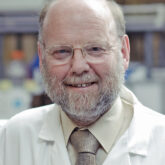
Sir Ian Wilmut, OBE, FRS, Ph.D.
Historical Perspectives Lecture
Position: Sir Ian Wilmut, OBE, FRS, Ph.D., is Professor Emeritus in the Centre for Regenerative Medicine of the University of Edinburgh, where his research has been concerned with the use of human cells to study the molecular mechanisms that cause ALS (Amyotrophic Lateral Sclerosis) and identify drugs that are able to reduce the debilitating symptoms.
Research: Current research aims to provide cells that can be used to treat liver failure. Dr. Wilmut was trained in animal science at the University of Nottingham before completing a Ph.D. at the University of Cambridge with E.J. “Chris” Polge and a post-doctoral fellowship with L.E.A. “Tim” Rowson when he carried out the research that produced the first calves from frozen and thawed embryos. From Cambridge, he moved to Roslin Institute near Edinburgh in 1973, where he was leader of the team that produced Dolly the cloned sheep, the first clone from an adult animal.
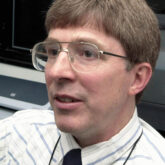
Milo C. Wiltbank, Ph.D.
AgResearch Lecture
Position: Milo C. Wiltbank, Ph.D., is Professor in the Department of Dairy Science and the Endocrinology-Reproductive Physiology Program in the College of Agricultural and Life Sciences at the University of Wisconsin—Madison.
Research: Dr. Wiltbank’s work addresses the mechanisms regulating ovarian function. Basic studies focus on the regulation of hormonal receptors in the corpus luteum and developing ovarian follicle, and applied studies focus on development of methods that allow timed artificial insemination and improve pregnancy rates in dairy cattle.

